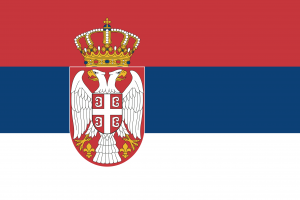Language/Serbian/Grammar/Verbs:-Infinitives
 Հայերէն
Հայերէն Български език
Български език 官话
官话 官話
官話 Hrvatski jezik
Hrvatski jezik Český jazyk
Český jazyk Nederlands
Nederlands English
English Suomen kieli
Suomen kieli Français
Français Deutsch
Deutsch עברית
עברית हिन्दी
हिन्दी Magyar
Magyar Bahasa Indonesia
Bahasa Indonesia فارسی
فارسی Italiano
Italiano 日本語
日本語 Қазақ тілі
Қазақ тілі 한국어
한국어 Lietuvių kalba
Lietuvių kalba Νέα Ελληνικά
Νέα Ελληνικά Şimali Azərbaycanlılar
Şimali Azərbaycanlılar Język polski
Język polski Português
Português Limba Română
Limba Română Русский язык
Русский язык Español
Español العربية القياسية
العربية القياسية Svenska
Svenska Wikang Tagalog
Wikang Tagalog தமிழ்
தமிழ் ภาษาไทย
ภาษาไทย Türkçe
Türkçe Українська мова
Українська мова Urdu
Urdu Tiếng Việt
Tiếng ViệtAs a Serbian language teacher, I believe that understanding Serbian grammar is crucial to learning the language. In this lesson, we will explore the concept of infinitives in Serbian verbs. By the end of this lesson, you will be able to understand how to use infinitives in your Serbian conversations and express your ideas more accurately.
Don't miss the chance to check out these pages as you wrap up this lesson: Plurals & Be Polite.
Infinitives in Serbian
In Serbian, an infinitive is an unconjugated form of the verb, similar to the English "to" + verb construction (e.g. "to go"). Infinitives can act as nouns, adjectives, or adverbs, depending on the context.
For example:
- Infinitive acting as a noun: Ići je zabavno. (Going is fun.)
- Infinitive acting as an adjective: Moja omiljena knjiga je čitati. (My favorite book is the one to read.)
- Infinitive acting as an adverb: Dođi da gledamo film. (Come to watch a movie.)
In Serbian, infinitives are formed by removing the ending of the present tense verb and adding one of the following endings: -ti, -ći, -ati, or -jeti. For example:
| Serbian | Infinitive |
|---|---|
| Radiš | raditi |
| Plivaš | plivati |
| Pečeš | pečenje |
The last example shows that some verbs form their infinitives by adding -enje to the stem. These verbs usually end in -et.
Uses of Infinitives
Infinitives in Serbian can be used in many ways. Here are some of the most common uses:
As a subject
In Serbian, infinitives can function as the subject of a sentence. For example:
- Raditi je zdravo. (Working is healthy.)
As a direct object
Infinitives can also act as a direct object of a verb:
- Volim da pevam u karaokama. (I love to sing in karaoke.)
As indirect objects
Infinitives can be used as indirect objects of verbs, indicating the purpose or reason for the action:
- Kupila sam novu haljinu da bih mogla izgledati lepo za rođendansku zabavu. (I bought a new dress to look nice at the birthday party.)
With prepositions
Infinitives are often used with prepositions such as za (for), od (from), do (until):
- Kupila sam novu haljinu za rođendansku zabavu. (I bought a new dress for the birthday party.)
- Hvala ti na poseti. (Thank you for the visit.)
Conclusion
Infinitives are an essential part of Serbian grammar that allows speakers to express their ideas accurately. By using infinitives, students of Serbian can communicate more effectively and fluently. In this lesson, we have explored the concept of infinitives in Serbian and their various uses in different contexts. Keep practicing and don't be afraid to use infinitives in your Serbian conversations!
Sources
- 3 Groups of Serbian Verbs: the Present Tense - Serbonika
- 86 Top Serbian Verbs: Present & Past Tense Chart
- All Shapes of the Future Tense in Serbian and Croatian Language ...
Well done on mastering this lesson! Don't miss these related pages to expand your knowledge: Conditional Mood & Comaratives and Superlatives.
Other Lessons
- Verbs: Past Tense
- Verbs: Present Tense
- Conditional Tense
- Indefinite Articles in Serbian
- Plural
- Verbs: Future Tense
- Pronouns
- Give your Opinion
- Pronouns: Personal Pronouns

